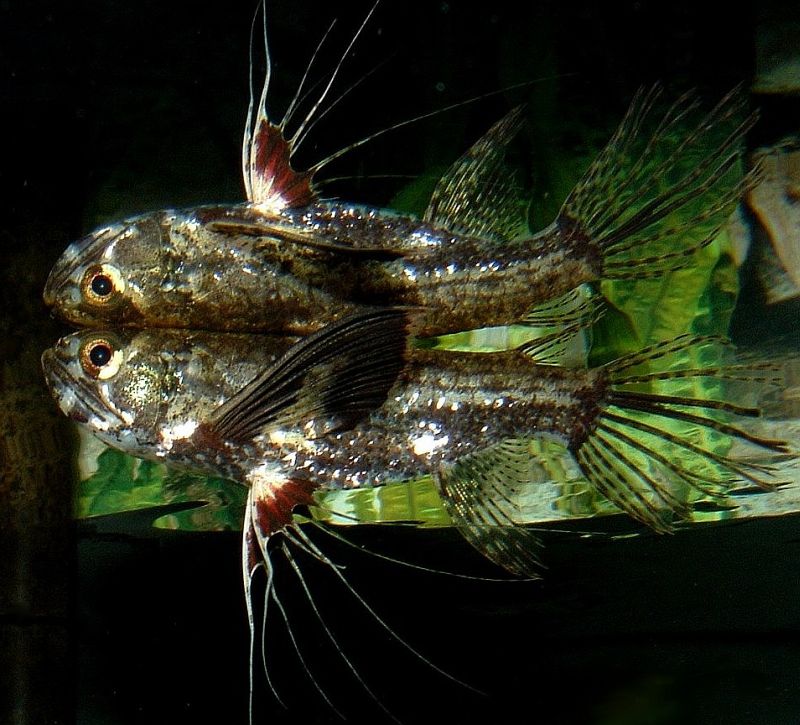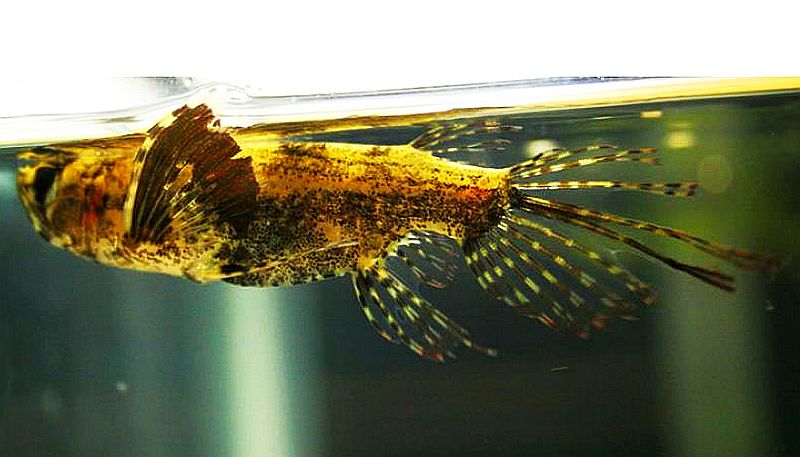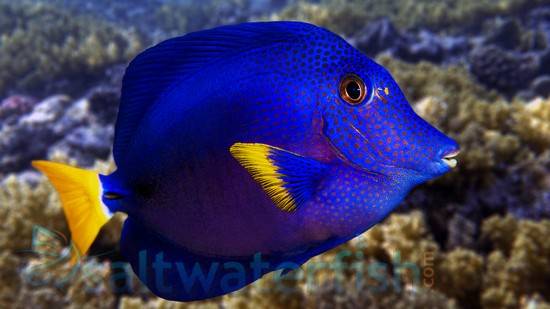What are the pros and cons of keeping a freshwater or saltwater aquarium?
Tropical fish keeping can be divided into two primary categories. Maintaining the care of freshwater fish or caring for their saltwater counterparts.
Both types of tropical fish keeping will provide you with a great deal of enjoyment and add some living color to your home.
Children and adults have been bringing home fish and other creatures from their local waters since the beginning of time. It could be crayfish, minnows or baby bluegill from a stream or a small octopus or Blenny from a saltwater pool at low tide. Regardless of what you bring home, you will need to take care of it, or eat it.
Assuming that you don’t want to eat your catch, your next step is to decide how to keep it alive. Aquariums fit the bill nicely and can be set up for either freshwater fish or saltwater specimens.
- Freshwater Aquariums:
Freshwater tropical fish are beautiful to look at and many species are adorned with unique color patterns akin to their more colorful saltwater cousins. Some are more exotic looking than others but if you have never dealt with freshwater tropical fish before, you will be mesmerized by them.
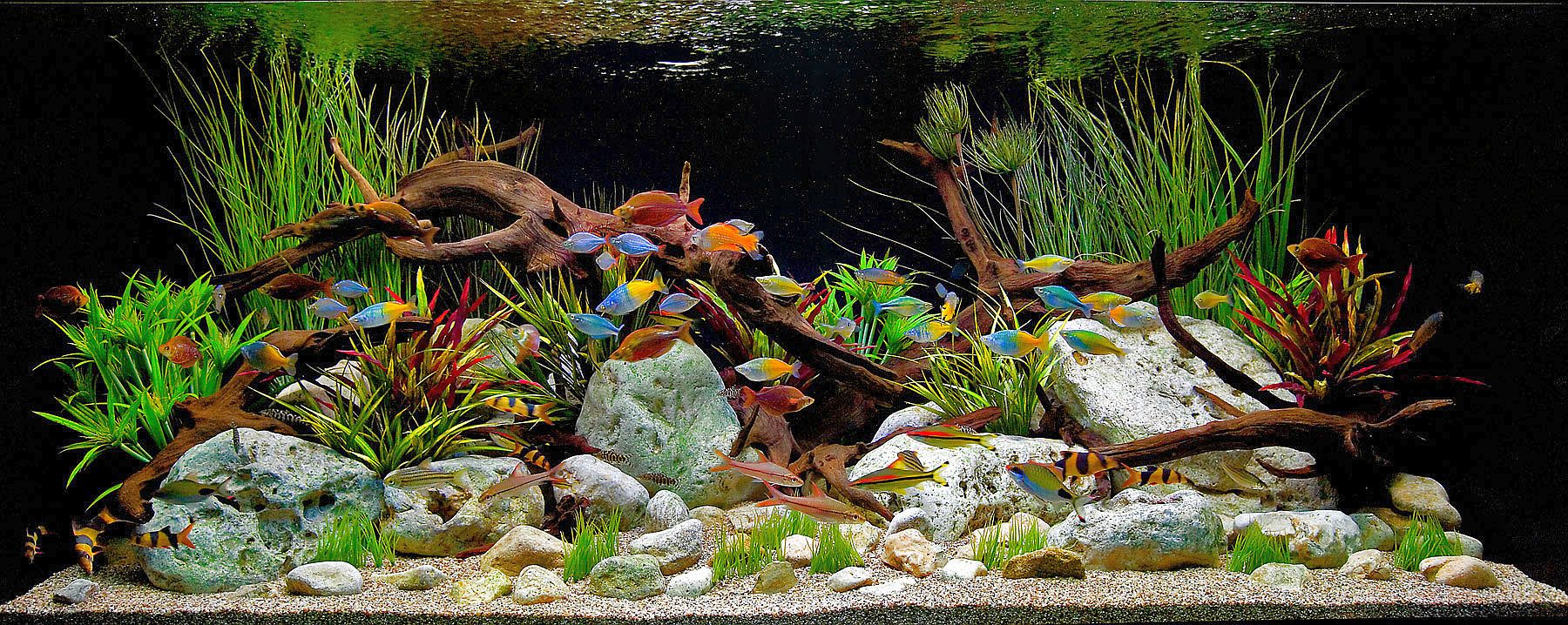
Colorful Freshwater Aquarium
Each species of fish may have have different requirements for their living conditions but many species can be housed together in a “community tank” setting and peacefully coexist with each other.
Beginning tropical fish keepers usually start with freshwater aquariums because they are easier to take care of and are more “forgiving” if you make a mistake. De-chlorinated tap water can be used to fill your tank and make periodic water changes, and test kits are readily available to ensure that everything is in order.
Fish that thrive in freshwater are not necessarily too particular about where they swim. Most will thrive in a neutral pH water environment however the water temperature IS important.
As their name implies, tropical fish like to have their water a bit warm. You can monitor and adjust this with a good heater placed in the tank. The emphasis is on GOOD one. A cheap heater could cause you to lose all your fish.
Freshwater aquarium setups are normally less expensive than the saltwater variety. The cost of the tank and stand is usually the same but the lighting, filters, protien skimmers, etc.can set you back a bit.
You can get a 30 Gallon acrylic show aquarium combo these days for around $225.00. This may sound expensive but it will save you money because you won’t have to spend more on additional equipment.
Freshwater tropical fish are also less expensive than saltwater fish unless you get into the really exotic species like Discus, Arrowanna, freshwater rays, etc.
- Saltwater Aquariums:
Saltwater aquariums are awesome in their beauty and will give and your friends hours of viewing pleasure, but they do require more work. This is why most beginning tropical fish keepers choose a freshwater aquarium to start with.
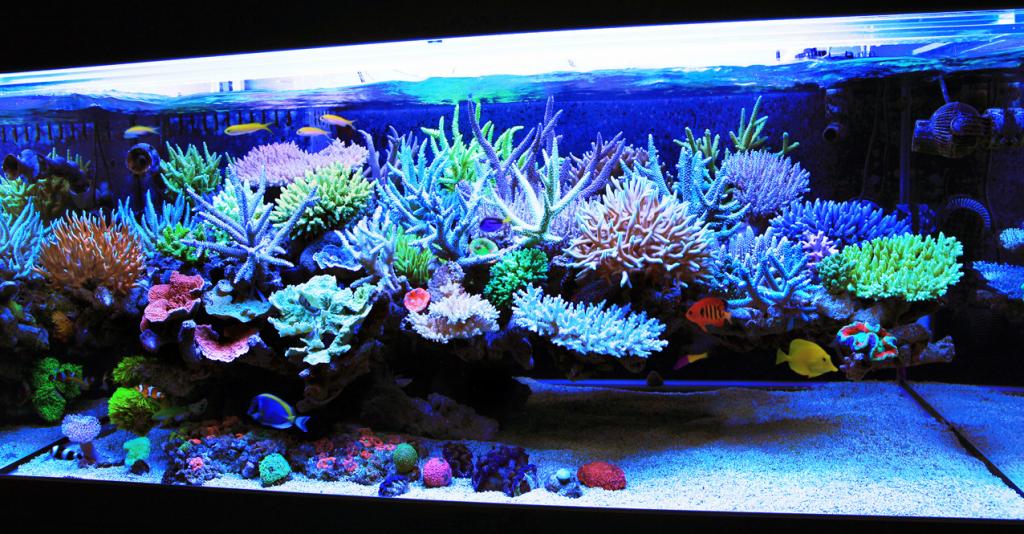
Saltwater Reef Aquarium
However, if you are a dedicated person willing to learn everything necessary to keep a saltwater aquarium running smoothly, saltwater fish keeping may be for you.
Saltwater tropical fish are a little more delicate than the freshwater fish you may be used to keeping. Setting up their environment correctly is critical to their survival and well being, at least in the beginning. Once they settle into their tank environment, their activities becomes what you would expect to see in a small part of the ocean.
Everything revolves around keeping the water salinity correct.
When keeping saltwater aquariums, monitoring of salt levels is crucial. Too much or too little salt will kill your fish and because saltwater tropical fish cost substantially more than freshwater tropicals, you will probably want to keep your fish alive as long as humanly possible.
Maintaining marine tropicals costs more than it does to maintain freshwater species, but do you know why?
Unless you live on the coast where you can easily collect fresh seawater to conduct periodic water changes, you will have to mix your own “sea water” using synthetic sea salt mixtures. Commercial sea salt for the aquarium trade has come down in price but is still expensive.
In addition, protein skimmers are needed to keep pollutant buildups out of your tank water and special lighting is needed if you choose to keep corals alive and healthy. These can initially be quite expensive however, if you don’t mind paying a bit extra and you have the dedication necessary to maintain a saltwater tank, you can literally move a part of the ocean into your home.
Once you decide to take on the responsibility of tropical fish keeping, your next decision is whether to invest in a freshwater or saltwater tank.
Hopefully, the above information will help you make your decision.



